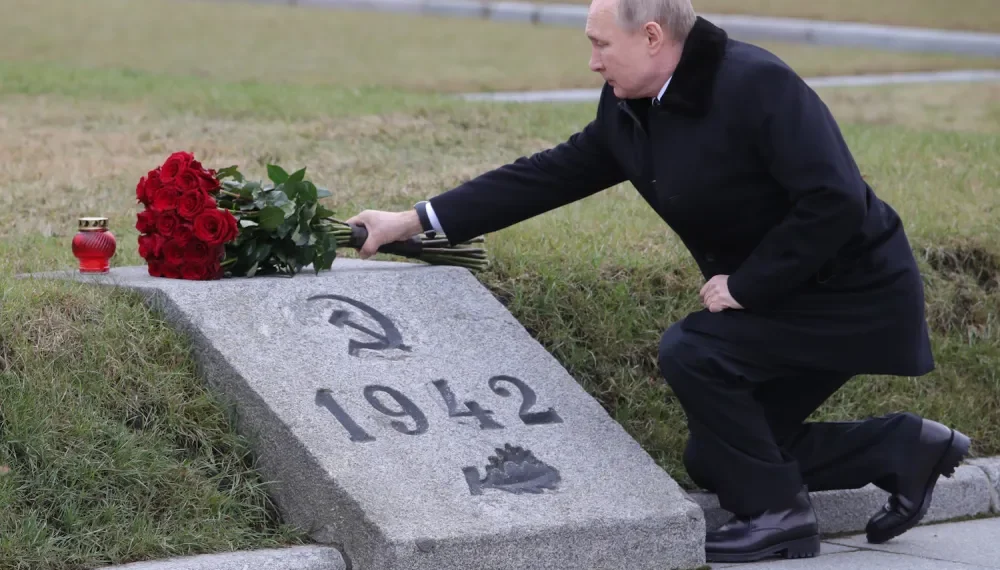Russian President Vladimir Putin has sharply criticized Ukraine’s ongoing efforts to dismantle Soviet-era monuments, labeling these actions as the work of “neo-Nazis” and accusing Kyiv of erasing historical memory. This rhetoric aligns with Moscow’s broader narrative that the invasion of Ukraine is a campaign to “de-Nazify” the country—a claim widely disputed by historians and international observers.
Radical Ukrainians are idiots for targeting Soviet monuments to World War II heroes, Russian President Vladimir Putin has said.
This behavior alone “gives us reasons to say that these people have a neo-Nazi ideology,” he stated during a visit to Kursk Region, which borders Ukraine, on Tuesday.
” If they participated in a competition for idiots, they would have finished in second place. Why? Because they are idiots,” he added, paraphrasing a popular joke. “By doing what they are doing, they show their nature.”
Ukraine’s Narrative Campaign
Since 2015, Ukraine has implemented a series of decommunization laws aimed at removing Soviet symbols and monuments. These laws mandate the renaming of streets and the removal of statues associated with the communist regime, including those commemorating World War II victories. Proponents argue that these measures are necessary to break free from Soviet-era influences and to promote a Ukrainian national identity. However, critics contend that the laws selectively honor certain historical figures while overlooking others who may have been involved in controversial actions during the same period.
In regions like Lviv, many Soviet monuments have been removed, raising questions about how to preserve or repurpose these historical artifacts. Some have been stored in museums, while others have been destroyed or left abandoned. This ongoing process has sparked debates within Ukrainian society about the balance between acknowledging the past and fostering a new national identity.
Russia’s Response
The Russian government has consistently condemned Ukraine’s actions, framing them as part of a broader effort to erase the Soviet Union’s role in defeating Nazi Germany. Russian officials, including President Putin and Foreign Ministry spokesperson Maria Zakharova, have characterized the removal of Soviet monuments as “anti-human” and a violation of historical truth. They argue that such actions dishonor the sacrifices made by Soviet soldiers during World War II.
Putin’s rhetoric often invokes the Soviet victory over Nazi Germany as a central element of Russian identity and pride. He has warned that attempts to revise this history equate to justifying the crimes of Nazism and open the way for the revival of its deadly ideology.
Historians and scholars have widely rejected Putin’s characterization of Ukraine as a neo-Nazi state. While acknowledging the presence of right-wing extremist groups in Ukraine, experts assert that these do not represent the country’s broader political landscape. They argue that Putin’s claims distort historical facts and serve as a pretext for aggression. The Auschwitz-Birkenau State Museum, for instance, has condemned Putin’s accusations, emphasizing the importance of accurate historical representation.
The controversy over the removal of Soviet monuments in Ukraine underscores the complex interplay between history, national identity, and international relations. While Ukraine seeks to redefine its identity post-independence, Russia and Putin view these actions as an affront to shared history and a challenge to their narrative of World War II. As the long-drawn-out Russia-Ukraine war rages on, the animosity between the two nations continues to deepen, and such a narrative of aggression is now becoming a part of the strategic warfare the two nations are conducting on each other.







